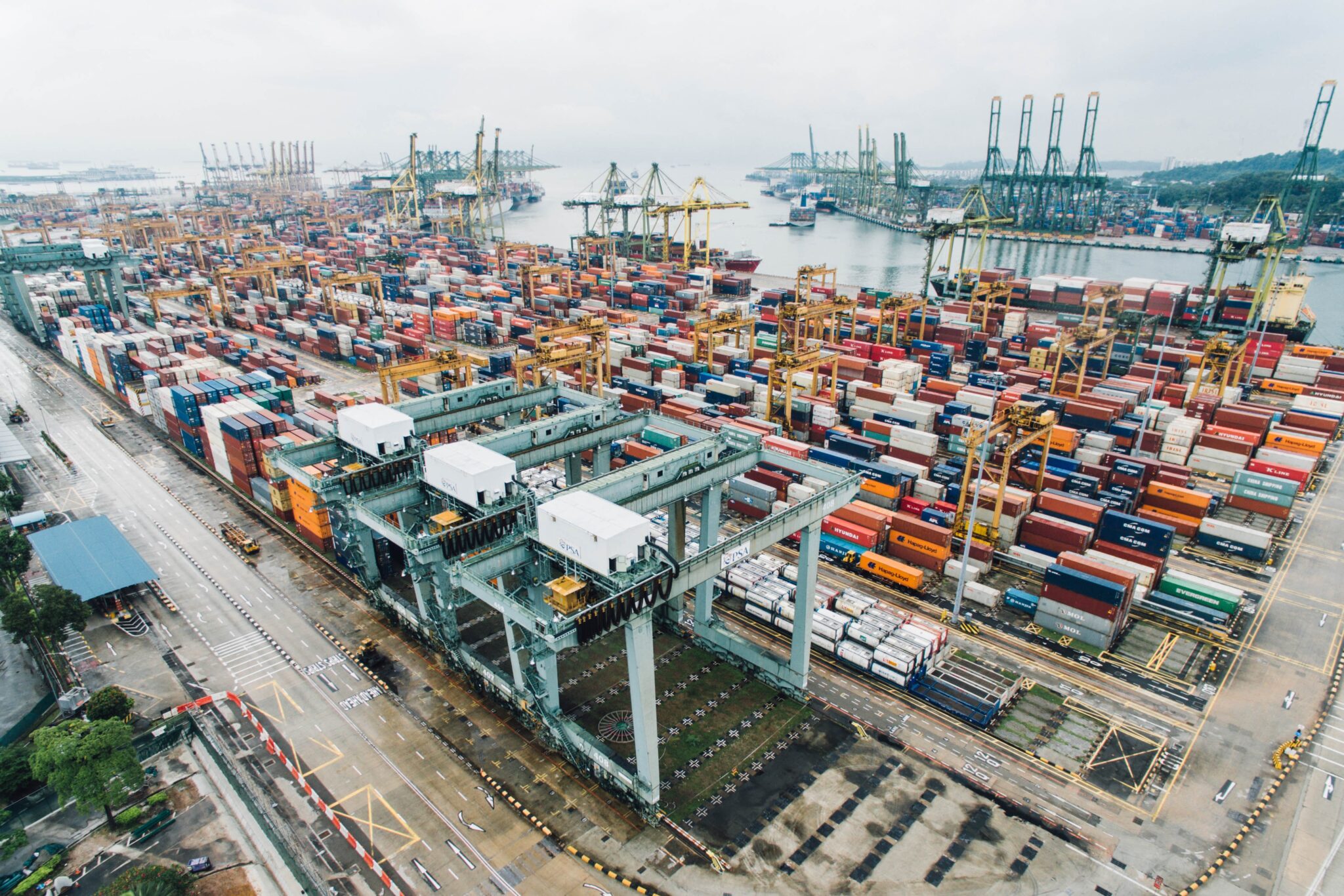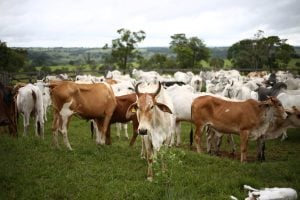The Southern Common Market (MERCOSUR) brings new trade deals and negotiations to its participating countries Argentina, Brazil, Paraguay, and Uruguay. Its goal is to generate business and investment opportunities. It has driven agreements with other countries, and the so-called Associated States, which lead to meetings and activities between those South American countries. on top of that, MERCOSUR has also brought commercial and political partnerships with countries all over the world.
We point out the trade deals and negotiations that MERCOSUR member countries have set and how buinesses in MERCOSUR member countries can benefit from them.
Formal trade agreements between MERCOSUR countries
Argentina-Paraguay deal supports automotive sectors
In October 2019, the governments of Paraguay and Argentina signed a bilateral free trade agreement for the automotive sector, which provides for the tariff reduction for all cars that Argentina exports to Paraguay. Trade brings in new automotive products produced in the territory of both countries benefit from a 100% preference, with the exception of passenger cars and cars designed for the transport of people, to which a reduction schedule will be applied annually and automatically as follows:

- 2019: 25%
- 2020: 50%
- 2021: 75%
- 2022: 100%.
The total market for new cars sold per year in Paraguay is 40,000 units. Argentina annually exports more than 4,000 vehicles to Paraguay, and represents the seventh export market for the automotive sector.
The Ministries of Finance of both countries signed a Memorandum of Understanding on bilateral cooperation in matters of fiscal, economic, and integration policies that will favor the creation of joint work mechanisms.
Regarding the communications area, another Memorandum of Understanding was signed with a view to strengthening connectivity between both countries through fiber optic links to the interconnection points where international internet providers are located and their connection to cables.
Argentina-Uruguay agreements give preference to market access
These agreements regulate the access of merchandise to markets. They usually include articles that establish tariff preferences, the prohibition of the application of non-tariff barriers, the rules of origin to be complied with for the purposes of accessing the tariff preference, as well as a dispute settlement mechanism.
We find the agreement: AAP.CE Nº 57 – on Conditions for Bilateral Trade Argentina-Uruguay for products of the automotive sector, whose objective is to establish rules for bilateral trade in the sector, until the effective entry into force of the Automotive Policy MERCOSUR. Automotive products will be marketed between the Signatory Parties with a preference margin of 100% (0% ad valorem intrazone rate) provided they meet the origin requirements and the other conditions stipulated in this agreement.
in 2018 Argentina and Uruguay signed an Antarctic cooperation treaty. Their main objective is to articulate an institutional framework for cooperation that already exists between both countries in the territory. It also seeks to encourage their collaboration and scientific exchanges.
What are the main imports and exports between these countries?
The main items exported from Argentina to Paraguay were products from chemical industries, food industries and mineral products. In 2020 so far, imports and exports reached the following values:
- US$69.2 million in exports
- US$36.4 million in imports
- US$32.7 million commercial balance.
Argentina’s imports from Paraguay are very specific, with 83% grouped into just two products. Electric power was the main national purchase making up 47% of imports from Paraguay, while soybeans ranked second with 36%.

The main items exported from Argentina to Uruguay were corn and medicines, followed by insecticides, rodenticides, fungicides, herbicides, germination inhibitors, plant growth regulators and disinfectants, then oil gas and other hydrocarbons and finally we find organic surface agents and cleaning preparations.
Regarding Argentina’s imports from Paraguay, auto parts are located, followed by cellulose, then we find plastics and their manufactures and finally soy.
A remarkable commercial exchange between Uruguay and Argentina is shaped by tourism: For Uruguay, Argentine tourism is key, since it represents 56% of the external tourism they receive each year and 70% during the summer months. “That is why Uruguay always wants Argentina to do very well, economically and socially. The growth of tourism from Argentina in particular means in particular a very important development, not only in the coming of tourists or in spending, but also in the investment that is generated on the coasts of our country.” In this regard, the number of Argentines who traveled to Uruguay in January to spend the holidays remained stable. Despite the 30% tax for expenses and reservations abroad, 288,604 Argentine visitors arrived in January, 0.7% more compared to the same month the previous year, when the number was 286,624.
Between Argentina and Uruguay, export values for 2020 so far have reached US$73.5 million. Imports reached US$21.5 million. The overall commercial balance is US$52 million.
What other opportunities does MERCOSUR offer to member countries?
Argentina considers Paraguay one of the most attractive destinations for Argentine agricultural machinery. Imports for this concept in Paraguay amount to US$212 million. 40% of these imports correspond to I&OM, seeders and sprayers.
In this regard, the commercial opportunity lies in the following premises:
- Argentina and Paraguay have similar agricultural production systems
- Paraguay has widespread use of direct sowing
- Paraguay has an important surface planted with the traditional crops of Argentina (wheat, soy, corn)
- The proximity reduces the costs of offering after-sales services
- This destination has lower quality requirements than in other countries.
Argentine exports of agricultural machinery in 2018 in numbers: 34% of 2018 exports went to Brazil. Exports rose from 13% in 2012 to 27% in 2018 to developed countries. The third destination were the other Latam countries, where 70% correspond to Paraguay, Uruguay and Bolivia.
Regarding the commercial opportunities with Uruguay, the country is a very convenient market to start international business, as it is accessible in several ways. Specifically, a study by Argentine Rural Confederations (CRA) showed that agriculture in Argentina is less competitive than Uruguay despite the advantage of higher yields. This causes Argentine firms to choose to invest in Uruguay.
“The erroneous agricultural policy of the Argentine government caused producers and agricultural companies to decide to invest and bet on growth in Uruguayan agriculture,” said Confederaciones Rurales Argentinas (CRA). The last time there was a change in production, in business culture, and in land tenure. In Uruguay, it was the Argentine producers who caused the greatest expansion and investment in infrastructure.
What other multilateral agreements are these countries (MERCOSUR) part of and how does it benefit them?

MERCOSUR forges a process of regional integration initially instituted by Argentina, Brazil, Paraguay and Uruguay.
MERCOSUR’s main objective is to promote a common space that generates commercial and investment opportunities through competitive integration of regional economies. As a result, it has established multiple agreements with countries or groups of countries, granting them, in some cases, the status of Associated States – this is the situation in South American countries. These participate in activities and meetings of the block and have commercial preferences with the states parties. MERCOSUR has also signed commercial, political or cooperation agreements with a diverse number of nations and organizations on the five continents.
The most important advantages of MERCOSUR for its member states derive from its declaration of principles:
- The free movement of goods, services and productive factors between countries.
- The establishment of a common external tariff.
- The adoption of a common commercial policy.
- Coordination of macroeconomic and sectoral policies among the states parties.
- The harmonization of legislation to achieve the strengthening of the integration process.
- The free movement of the citizens of the block.
MERCOSUR advantages for the exporter
All these measures have a direct impact on the trade relations of these countries with the exterior. Among the commercial advantages, we find that the modernization of trade regimes in the member countries makes export more attractive.
The European Union-MERCOSUR Agreement implies the integration of the region with a market of 800 million inhabitants, almost a quarter of the world GDP and with more than US$100 billion of bilateral trade in goods and services. It is a milestone for international insertion of Argentina since it increases exports from regional economies, consolidates the participation of our companies in global value chains, promotes the arrival of investments, accelerates the process of technology transfer and increases the competitiveness of the economy, all of which will generate an increase in the Gross National Product and increase in quality employment.
Furthermore, it constitutes an institutional seal that gives a permanent character to the strategic relationship with the EU, guaranteeing transparency, predictability and clear rules for economic actors.
Any mutual cooperation initiatives between these countries?
Between Argentina and Paraguay, there are a number of Cooperation and Mutual Assistance agreements.
Technical Assistance Agreement in customs matters
This agreement was made between the Federal Administration of Public Revenue of the Argentine Republic (AFIP) and the National Customs Directorate of the Republic of Paraguay: by which they establish mutual institutional cooperation and the provision of technical assistance with the purpose to optimize its control functions of international trade and other customs activities. Reciprocal technical assistance consists of:
- exchange of customs officials in order to present advanced means for customs control in use
- exchange of information and experience in the use of technical equipment for control
- training and retraining of customs officials
- exchange of experts in customs matters
- exchange of specific scientific and technical information related to the application of customs legislation.
Memorandum of Understanding between the AFIP and the Undersecretariat of State for Taxation of the Republic of Paraguay
This Memorandum of Understanding (MoU) supports the creation of working groups, exchange of specialists, technical visits or information from one country to another; conducting conferences and seminars on tax administration, workshops, courses or internships organized in Argentina or Paraguay; interaction and creation of favorable conditions for the training of the personnel of the two tax administrations; exchange of experiences, especially on organization models, management control, strategic communication, indicator management, training and motivation of officials, risk management, and information management.
Cooperation and Mutual Assistance agreements for Argentina and Uruguay
Likewise, Argentina and Uruguay have a number of agreements. Notably, this relationship includes the Technical Assistance Agreement in customs matters between the Federal Administration of Public Revenue of the Argentine Republic (AFIP) and the National Customs Directorate of the Republic of Uruguay, by which they establish mutual institutional cooperation and the provision of technical assistance in order to optimize its control functions of international trade and other customs activities.
Additionally, the two countries hold a Cooperation and Mutual Assistance Agreement on tax matters: Within the framework of this agreement, Argentina and Uruguay undertake to promote within the MERCOSUR Common Market Council, the adoption of a Framework Agreement for the negotiation between the States Parties of bilateral agreements. for the exchange of tax information and method to avoid double taxation.
Contact an expert to take advantage of MERCOSUR’s favourable trade deals and negotiations
Biz Latin Hub has experience in facilitating international business, and we specialize in unlocking the potential of Latin America for the foreign multinational executive. Our local and expatriate professionals offer a full suite of multilingual market entry and back-office services, including in company formation, hiring and PEO, immigration, trade and accounting.
Contact us to find out more about how we can serve your needs.
Learn more about our team and expert authors.






